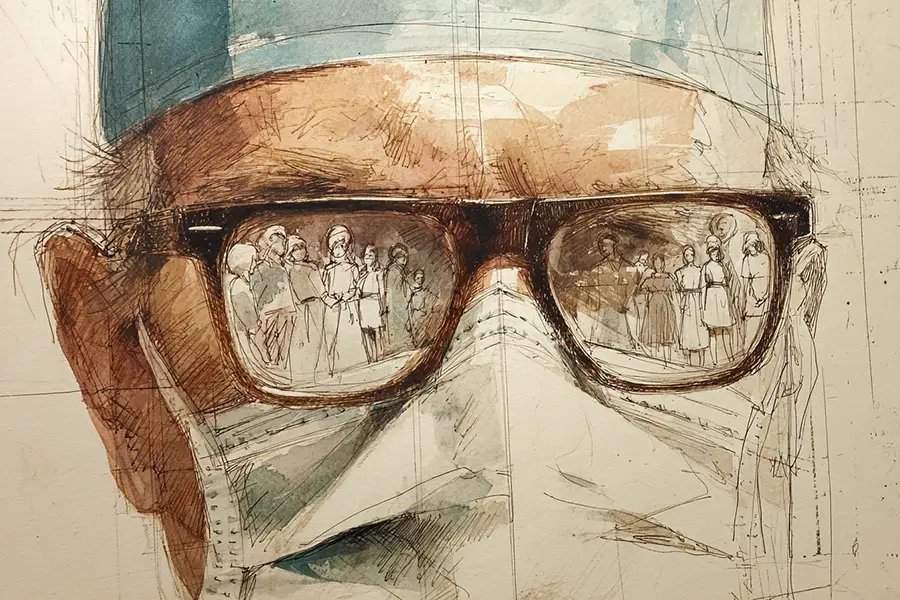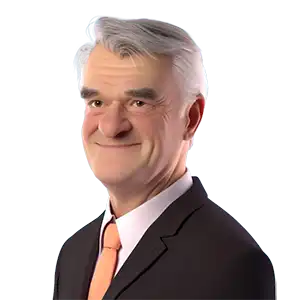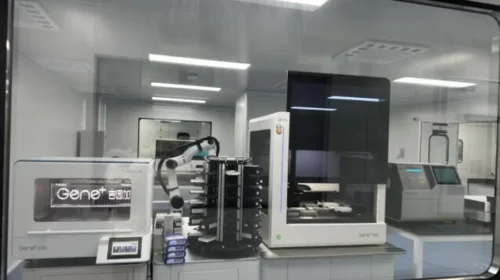Private healthcare’s unclear road, and a surging cosmetic surgeon

“It’s in difficult economic conditions that you find much better, as in cheaper, opportunities to acquire and build bigger market share.”

By Doug Young & Rene Vanguestaine
After years of heady growth fueled by rising incomes and aspirations for better care, a dose of reality is hitting China’s private medical services sector. For providers of out-of-pocket services like specialty eye and dental care, the outlook is increasingly murky as a slowing economy forces consumers to tighten their purse strings. Yet, in a related field, one company in the cosmetic surgery space is bucking this trend, capturing investor attention with a bold pivot in its business model.
We believe the challenges and opportunities facing these two segments offer a revealing look into the shifting landscape of Chinese consumer spending and corporate strategy. The core issue is that because they generally fall outside the national medical plan, private clinics are reliant on discretionary spending. With the economy flagging, this kind of spending is one of the first areas where people are cutting back.
This marks a sharp reversal from just a few years ago. Investors once held high hopes for the sector, looking to capitalize on China’s increasingly wealthy consumers and the well-documented shortcomings of the public healthcare system, such as long wait times. This demand spurred the growth of private healthcare insurance, often provided by employers or purchased by the affluent, which in turn fueled the expansion of private clinics and hospitals.
Now, however, companies like Chaoju Eye Care (2219.HK), a regional player, are seeing revenues contract and profits tumble. While we think there will always be a fundamental level of need — one cannot simply ignore a serious eye problem — the broader trend is one of caution. Consumers are thinking twice about any spending that is not an absolute necessity.
For the industry, which is highly fragmented with many operators running just one or two facilities, this downturn presents a unique opportunity. We see the sector as ripe for consolidation. In these economic circumstances, larger players with sufficient capital can find much cheaper opportunities to acquire rivals and build market share. A company like Chaoju, which had previously been a consolidator before pausing its activity, could re-enter acquisition mode. If it has the money or acceptable capital like equity, we believe this is a good time to go on the offensive.
However, this path is fraught with challenges. Consolidation is a slow process in a country as vast and stratified as China, with varying levels of sophistication from tier-one to tier-five cities. The most critical risk, we think, is ensuring the acquisition of quality assets, not just any distressed facility.
A new face for cosmetic surgery
While many private medical providers struggle, cosmetic surgery platform So-Young (SY.US) has seen its stock come roaring back to life. After years of stagnation and facing a potential delisting, its shares have surged as investors embrace a fundamental shift in its business model.
Previously, So-Young operated primarily as an intermediary, connecting consumers with thousands of cosmetic surgery centers across China. Now, it’s moving to a vertically integrated model by opening its own clinics. This evolution, from platform to operator, is what has ignited new confidence.
We see several reasons for this optimism. First, a traditional vertical integration model comes with clear economic and financial benefits. Second, and perhaps more importantly, it gives the company better control over the quality of services. From a marketing perspective, this is a powerful advantage that should appeal to a large number of potential customers. We view this as a natural evolution; after growing its expertise as an intermediary, the company is now leveraging that knowledge to perform the services itself.
But this new model carries a heavier risk burden. In the previous model, if a client had a bad experience at a referred clinic, So-Young might have suffered a reputational blow, but its legal liability was likely insulated. Now, as the owner and operator, the buck stops with them.
To succeed, the company must attract top-tier medical talent and implement rigorous systems and protocols to ensure consistent quality across every single facility. This is a very different challenge from running a platform. The growth must be managed carefully; expanding too quickly is always risky, but in a business involving cosmetic procedures, the risks are significantly higher. One potential strategy could be to acquire some of the high-quality clinics it previously referred business to, bringing them in as partners after years of observing their performance.
From an investment standpoint, we view the company’s short-term prospects as speculative, driven by excitement around the new strategy. The longer-term outlook is more comfortable, though it requires patience. It’s a bet on the company’s ability to manage the inherent risks of its new model and, more broadly, on the eventual recovery of Chinese consumer spending. After all, China remains the world’s second-largest economy, and we believe the government will eventually have to do more to support consumption. For investors willing to do their homework and assess how the expansion unfolds, there is a possibility to make some money over time.
About China Inc
China Inc by Bamboo Works discusses the latest developments on Chinese companies listed in Hong Kong and the United States to drive informed decision-making for investors and others interested in this dynamic group of companies.
Subscribe to China Inc on your favorite app:







